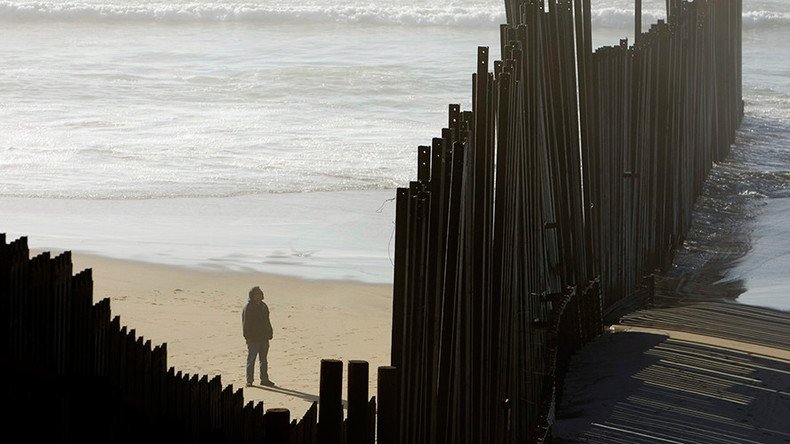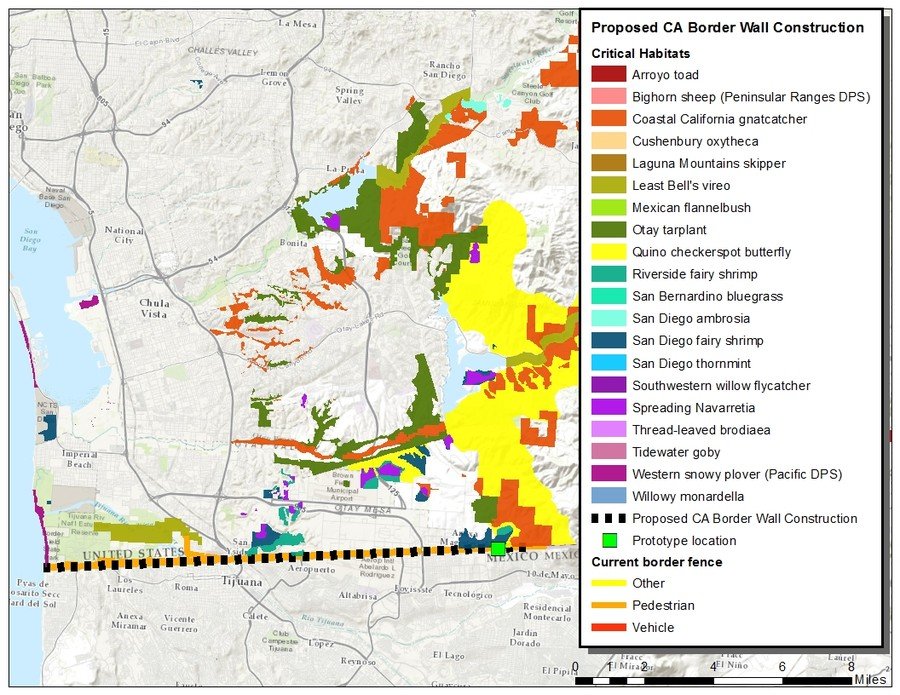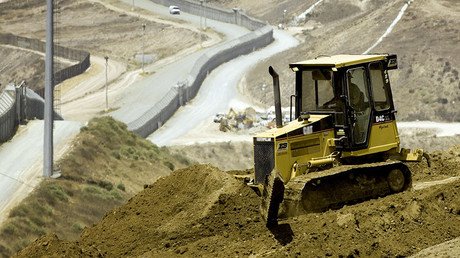Trump admin waives environmental laws to expedite border wall construction

Environmental activists say the Department of Homeland Security is violating the Constitution with its move to exempt itself from a number of laws that would impede construction of President Donald Trump’s wall along the US-Mexico border.
On Tuesday, the DHS announced it issued a waiver to bypass some environmental laws in order to “ensure the expeditious construction of barriers and roads” on the US border south of San Diego.
The waiver covers certain border infrastructure projects in the US Border Patrol’s San Diego Sector, which the DHS said is “one of the busiest sectors in the nation.”
"The sector remains an area of high illegal entry for which there is an immediate need to improve current infrastructure and construct additional border barriers and roads,” the agency said in a statement.
Another brick in the Wall: Congress approves funding for Trump’s Mexico barrier https://t.co/VdqgQucsumpic.twitter.com/zVf6ZK76IG
— RT America (@RT_America) July 27, 2017
The waiver will allow DHS to implement various border infrastructure projects at a 15-mile segment of the border, which stretches from Imperial Beach on the Pacific coast to one mile east of Border Monument 251, in the outskirts of San Diego and Tijuana.
DHS claims that in fiscal year 2016, US Border Patrol apprehended more than 31,000 undocumented immigrants and seized 9,167 pounds of marijuana and 1,317 pounds of cocaine in the San Diego sector alone.
DHS said Congress has called for “additional fencing, barriers, roads, lighting, cameras, and sensors” to secure that section of the border. The cost and start date were not mentioned in the announcement.
In January, Trump, who made the border wall one of his major campaign issues, issued an executive order, directing DHS to begin construction of the wall along the US-Mexico border.
In Tuesday’s announcement, the department said the Illegal Immigration Reform and Immigrant Responsibility Act of 1996 (IIRIRA) grants the DHS “authority to waive all legal requirements which the Secretary determines necessary to ensure the expeditious construction of the barriers and roads.”
Under federal law, the government is generally required to conduct environmental impact studies when building on public land. The department said the waiver will eliminate their obligation to comply with “a variety of environmental, natural resource, and land management laws.”
However, the department vowed to remain “committed to environmental stewardship with respect to these projects.”
“DHS has been coordinating and consulting – and intends to continue doing so – with other federal and state resource agencies to ensure impacts to the environment, wildlife, and cultural and historic artifacts are analyzed and minimized, to the extent possible,” the agency said in a statement.
In May, Rep. Raul Grijalva (D-Arizona), a ranking member of the House Committee on Natural Resources, and the nonprofit Center for Biological Diversity sued the DHS and US Customs and Border Patrol (CBP) for failing "to prepare and publish legally required environmental impact analyses for the border wall."
.@realDonaldTrump wants to do away w/ the following for his wall:
— Raul M. Grijalva (@RepRaulGrijalva) August 1, 2017
❌Endangered Species Act ❌Clean Water Act ❌Clean Air Act ❌Antiquities Act
"Trump wants to scare people into letting him ignore the law and endanger wildlife and people," Brian Segee, an attorney with the Center for Biological Diversity, said in a statement Tuesday. "We believe the waiver is unconstitutional, and we’re confident the courts will agree."
The lawsuit was filed after the Center for Biological Diversity released a study in May that identified more than 90 endangered or threatened species that would be affected by the construction of the wall.

Between 2005 and 2008, DHS issued a waiver to expedite construction of the border wall under former President George W Bush. The waivers were challenged in court several times, but each time, a federal court upheld the exercise of waiver authority as constitutionally valid. The Supreme Court also declined to review the issue on two separate occasions.
A poll released by Rasmussen Reports on Monday, found only 37 percent of likely voters believe the US should build a wall along the Mexican border to help stop illegal immigration.















